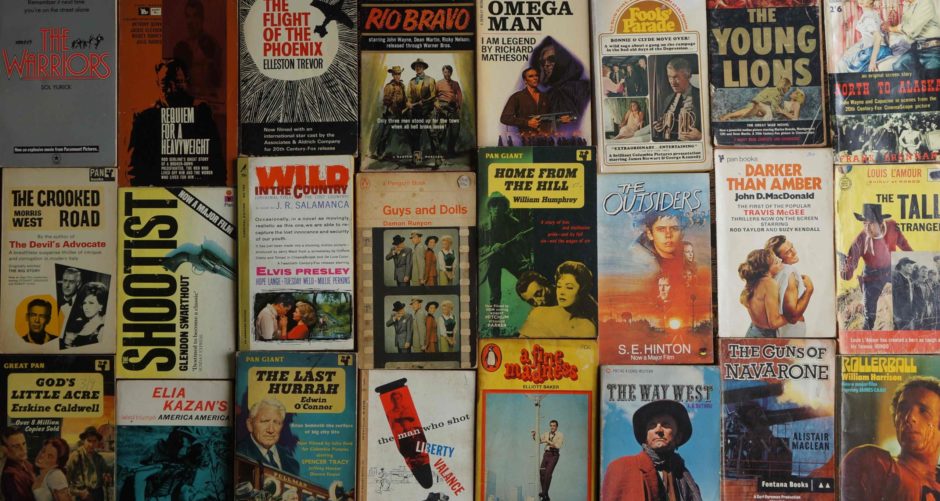FILM DIRECTOR: Carol Reed
SCREENWRITER: Clair Huffaker
FILM STARS: Anthony Quinn, Claude Akins, Tony Bill, Shelley Winters, Victor Jory, Don Collier, Victor French, Rodolfo Acosta, Susana Miranda, Anthony Caruso, William Mims, Rudy Diaz, Pedro Regas, John War Eagle, J. Edward McKinley, Robert Cleaves
COUNTRY: USA
THIS BOOK
AUTHOR: Clair Huffaker
TYPE: Novel
PUBLISHER: Sphere
THIS EDITION PUBLISHED: 1970
COUNTRY: Great Britain
COVER: Paperback
THE ORIGINAL BOOK
ORIGINAL AUTHOR: As Above
YEAR FIRST PUBLISHED: 1967
ORIGINAL BOOK TITLE: Nobody Loves a Drunken Indian
NOTES
GENRE: Contemporary Western, Western
WORDS: “The Last Warrior” is the British title for the film but the film is more commonly known as “Flap” after the title character, Flapping Eagle. Tough often dismissed, I like this film. Why? Because I like Anthony Quinn, contemporary westerns (especially when set amongst Native Americans), and the mood of the times when the film was made (1969-70).
Despite it standing up for Native American rights, and taking on the government and big business, it got some flak at the time (and some praise) for its depiction of Native Americans. I think it would do less well today, especially with white middle class non-Native Americans (much like Dan Cushman’s (much maligned and misunderstood) “Stay Away Joe”). I mean any comedy about native Americans living on reservations is going to cause pitchforks to be carried to the moral high ground
I’m not sure why Englishman Carol Reed (Odd Man Out (19847), The Third Man (1949), Trapeze (1956), The Agony and the Ecstasy (1965), Oliver! (1968)) was directing this apart from the suggestion that, he not being a director of westerns, would be able to approach the subject with some freshness. The film is both broad humour and deep drama, and, the themes (land rights) are still relevant in the American west and elsewhere. The film doesn’t always work but anything with Anthony Quinn, even if it is “Zorba goes west ” works for me (the supporting cast help also).
The book is even more broadly humorous and deeply darker. Western literature (and film) of the 60s became more cynical and contemporary (even when not dealing with the contemporary west) and it is a fascinating period. All the old western authors who may have started in the 40s or 50s found they could write to a different audience. Perhaps they were changing their novels to suit the times or perhaps they found a freedom to address issues they always wanted to but either way the western started dealing with what happened to the west after it was “tamed”. This proved to be quite fertile until western literature moved into nostalgia sometime in the 80s. Huffaker, always a little more observant than your standard western writer, and often quite humorous, does both here well.
LINKS
CLIP from film
https://www.tcm.com/video/1084599/flap-1970-movie-clip-holy-last-resting-place/



yep re Kirk … no one pushes Kirk around. His Bryna Production Company was involved with (partially funded) POG ..and…